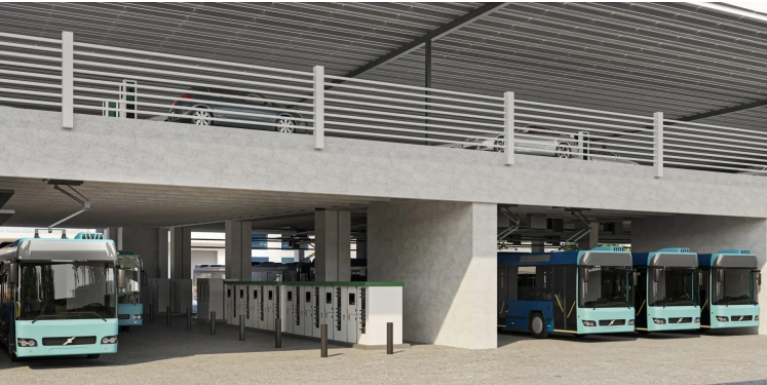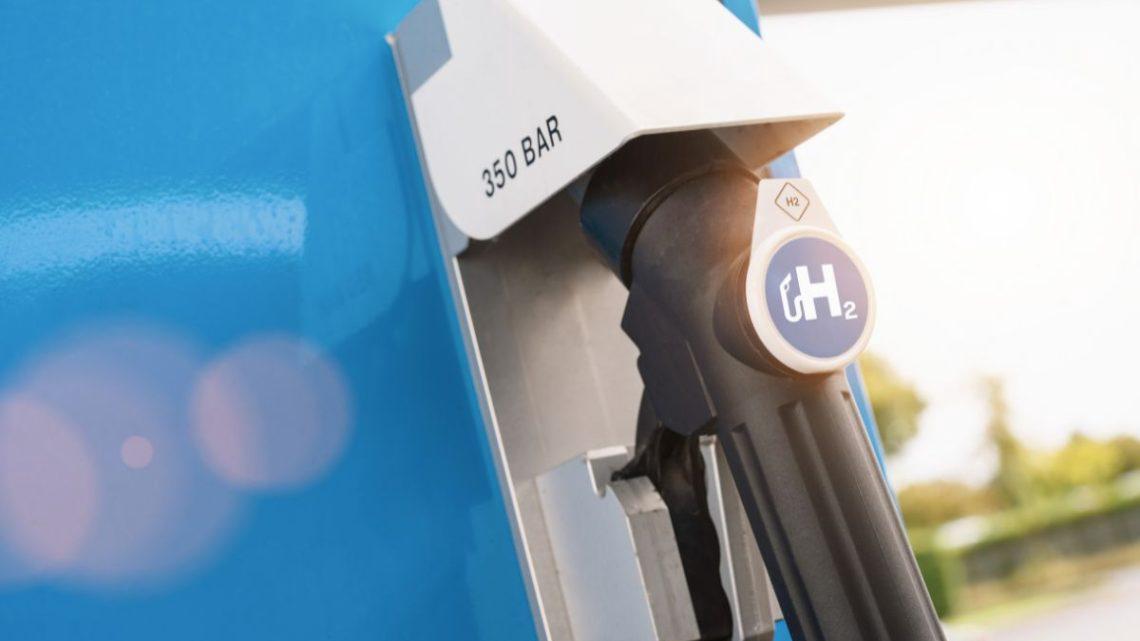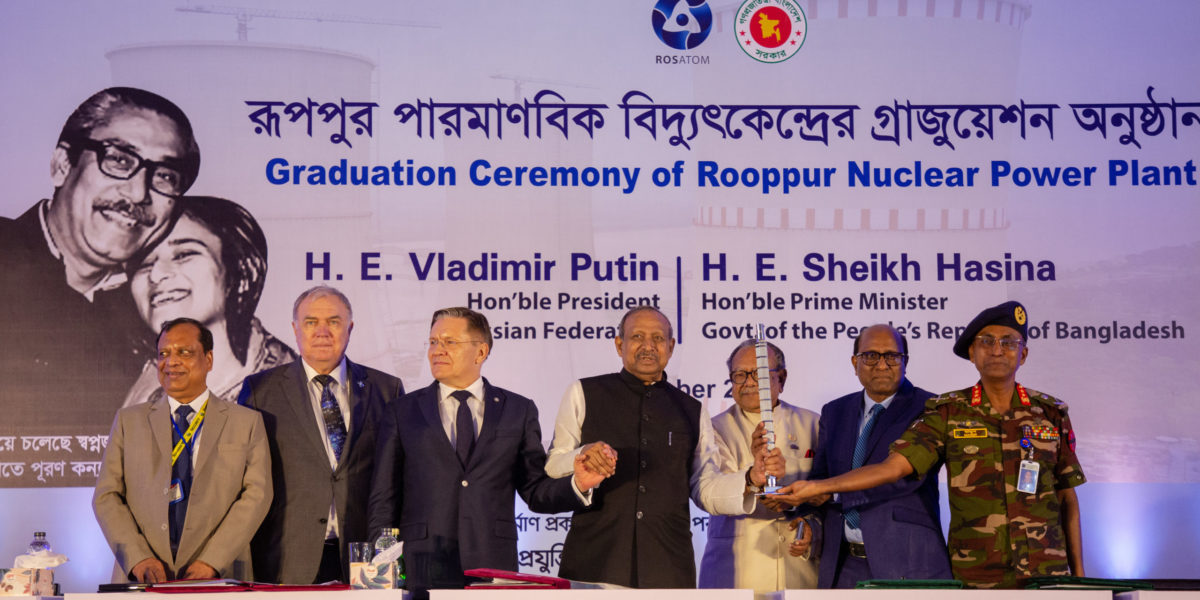 The official ceremony dedicated to the delivery of the first batch of nuclear fuel has been held at Rooppur NPP construction site in the People’s Republic of Bangladesh (the general designer and general contractor is Rosatom State Corporation Engineering Division). Vladimir Putin, President of the Russian Federation, Sheikh Hasina, Prime Minister of the People’s Republic of Bangladesh and Rafael Grossi, IAEA Director General participated in the ceremony in the video-conference mode. The ceremony marked the receipt of the status of a nuclear facility by the first NPP in Bangladesh. At the site, the event was attended by Alexey Likhachev, Director General of Rosatom State Corporation, Architect Yeafesh Osman, the Minister of Science and Technology of the People’s Republic of Bangladesh and other official guests.
The official ceremony dedicated to the delivery of the first batch of nuclear fuel has been held at Rooppur NPP construction site in the People’s Republic of Bangladesh (the general designer and general contractor is Rosatom State Corporation Engineering Division). Vladimir Putin, President of the Russian Federation, Sheikh Hasina, Prime Minister of the People’s Republic of Bangladesh and Rafael Grossi, IAEA Director General participated in the ceremony in the video-conference mode. The ceremony marked the receipt of the status of a nuclear facility by the first NPP in Bangladesh. At the site, the event was attended by Alexey Likhachev, Director General of Rosatom State Corporation, Architect Yeafesh Osman, the Minister of Science and Technology of the People’s Republic of Bangladesh and other official guests.The leaders of the two countries gave a symbolic permission for the delivery of the nuclear fuel to the NPP construction site. In his turn, Alexey Likhachev, Rosatom Director General, gave a certificate to Architect Yeafesh Osman, the Minister of Science and Technology of Bangladesh, confirming the delivery of the fuel in compliance with all the safety standards and requirements. The fuel for Rooppur NPP was manufactured in Russia at Novosibirsk Chemical Concentrates Plant (NCCP), an enterprise of Rosatom’s Fuel Division. The fuel manufacture and transportation was performed under an active guidance and supervision of Bangladesh Atomic Energy Regulatory Authority (BAERA).
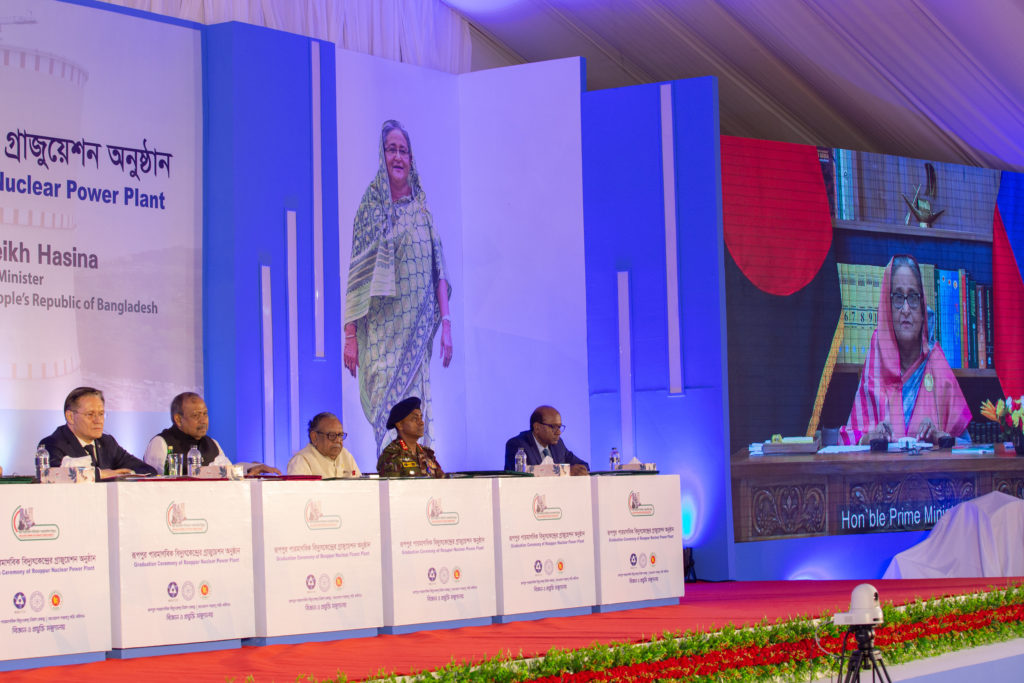
“This day marks a new stage in the development of Russian-Bangladeshi relations. After the delivery of nuclear fuel, Rooppur NPP becomes a nuclear facility, and the People’s Republic of Bangladesh gets the status of a country that possesses peaceful nuclear technologies. For Rosatom, it is a great honor to implement a project which will ensure stable power supply and will help to preserve the unique nature of Bangladesh for future generations”, said Alexey Likhachev, Director General of Rosatom State Corporation, during the ceremony.
“We’ve been waiting for this special moment for a long time. It is a celebration not only for the people of Pabna district but also for the entire nation. On October 5 we received the fuel delivery certificate, which itself speaks about our achievements as a nation. Bangladeshi people are vibrant and colorful and we are going to celebrate it in a very colorful manner. The entire nation is in festive mood”, said Architect Yeafesh Osman, Minister for Science and Technology, Government of the People’s Republic of Bangladesh.
FOR REFERENCE
The Rooppur NPP site is located on the eastern bank of the Ganges River in Pabna district at a distance of about 160 km northwest of the city of Dhaka- the capital of the People Republic of Bangladesh. The Russian design of with VVER-1200 reactors has been selected for first NPP in Bangladesh. This is an evolutionary Gen III+ design, which fully complies with all international safety requirements. The life cycle of the reactors is 60 years with the possibility of extension of the service life for another 20 years.
Russia is consistently strengthening cooperation with friendly countries. The implementation of joint major energy projects is underway. Rosatom and its divisions are taking an active part in this work.
